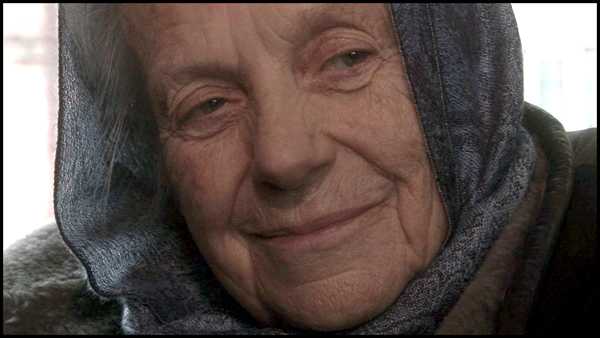|
Reviews of Recent Independent, Foreign, & Documentary Films in Theaters and DVD/Home Video

THE WOMAN WITH THE 5 ELEPHANTS
The quintet of pachyderms making up the film’s title are Fyodor Dostoyevsky’s classic novels Crime and Punishment, The Brothers Karamazov, The Idiot, The Devils, and A Raw Youth, dense, difficult works that have dominated Geier’s life for the past 20 years. Jendreyko then subtly transforms his documentary from an engrossing look of an indomitable spirit unpretentiously plying her trade into an illuminating treatment of a life deeply affected by sadness and tragedy, not unlike the protagonists of the “elephants” that haunt her work. She journeys back to the Ukraine, accompanied by her granddaughter, to teach and discuss her work, and while there she revisits several childhood haunts that she has not seen since she left 64 years earlier. Her return allows Jendreyko to detail Geier’s past and how she survived incredible hardships while growing up, notably the horrible death of her father at the hands of Stalin’s vicious purges. Fluent in German, Geier survived the occupation of Kiev by Hitler’s forces during World War II by taking translating jobs with the occupiers. She was present when local Jews, including close friends, were rounded up and marched off to their deaths—upwards of 30,000 men, women and children were murdered by the Nazis in the infamous Babi Yar massacre. Geier is nearly speechless when Jendreyko asks her about it, admitting that it “never becomes the past,” since she always carries its horror with her. Discussing her love for her adopted country, Geier strongly denounces Hitler as someone who has nothing in common with the great German literary artists Goethe, Schiller, and Thomas Mann. (She left Kiev in 1943 after the German retreat, and eventually attended college in Freiburg.)
This compassionate portrait, which came not a moment too soon since
Geier died last year at age 87, is enriched by Geier’s personal
background and the Soviet Union’s history. It’s also an intelligent
exploration of the complexities of language as Geier’s subtle artistry
allows Dostoyevsky’s deep meanings to become clearer for German readers.
For all its
recording of a life drenched in unspeakable tragedy, there’s also time
for the film to show the simple pleasure of Geier and her friend gently
sparring over punctuation or phraseology in her translations. Such a
charming scene makes a fitting epilogue for The Woman with 5
Elephants.
Kevin Filipski
|

